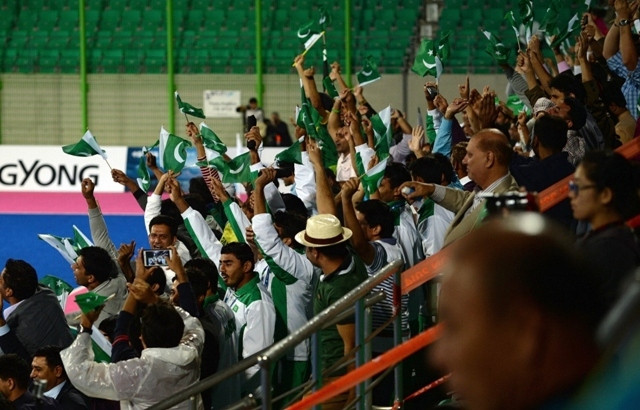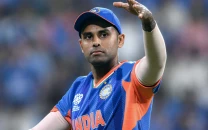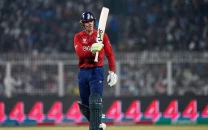Defeat in the final comes with a silver lining
The Greenshirts announced their return to hockey’s elite with an impressive tournament

On Thursday afternoon, after India and Pakistan, two bitter and unyielding rivals, were tied 1-1 at the end of normal time, the 26-year-old goalie knew that it was time to deliver on his promise.
Just two days before, Pakistan had emerged triumphant from a similar situation against Malaysia in the semi-finals and the title defence was a very achievable reality.
As per the new rules, a player now has to dribble into the ‘D’ from the 23-yard line and find a way past the goalkeeper. However, at the Seonhak Hockey Stadium, during those crucial seconds in the shoot-out, it was India’s goalkeeper Sreejesh Parattu Raveendran who came up trumps, and in those all-important few moments, he stood as tall as a giant in front of his goal. Inaccuracy, pressure and a lack of confidence and composure ultimately led to Pakistan’s downfall as they slumped to a 4-2 defeat on penalties.
Sreejesh charged at the Pakistan penalty-takers to narrow down the angles, using his stick to sweep the ball away and even putting his body on the line when needed. He was down one moment to prevent the shots, up the next to stop the flicks. The nation waited for Butt’s promised gift, but it never arrived.
In the previous five matches, Pakistan had remained unbeaten, thanks largely to a newfound sense of belief instilled by new coach Shehnaz Sheikh. The coach egged the team on from the sidelines; supporting, giving tips, telling them the weaknesses of their opponents and motivating them when it mattered most.
It was not only the wins that impressed, but also the manner in which they were won. The goals flew in throughout the tournament. Ten players out of the 16-man squad scored. In total, Pakistan netted 27 times in the tournament, second only to South Korea, who scored 28. The captain, Muhammad Imran, led from the front with six, and Umar Bhutta’s five made him the leading field-goal taker.
After a series of continuous disappointments and let-downs, the hockey team’s performances were finally good enough to warrant a successful defence of the Asian Games gold, and that feeling grew with every passing game. In the end, it was not to be, but the doom and gloom surrounding Pakistan hockey may now finally end.
A feeling of bitter disappointment will undoubtedly prevail – especially considering the rivalry with India – but, put in perspective after all the uncertainty and lack of preparation, the run to the finals is commendable on its own.
Much of the credit should go to Sheikh, who worked tirelessly on the players for six months, concentrating on each individual’s abilities and trying to bring out their best.
The six-month training did wonders, bearing better fruit than participation in international matches did for other teams. Pakistan may have missed out on the World Cup and the Commonwealth Games, which meant that they had not played a competitive international match for 11 months, but in the end, Sheikh’s efforts were vindicated.
Silver it may be, but after having defeated Malaysia and India in their run to the final, the tournament signalled Pakistan’s return to the sport’s elite. Had lady luck been smiling on them, the Greenshirts might just have defended their title against all odds.
For better or for worse, this will go down in Pakistan hockey history as one of its most unforgettable achievements. They are back where they belong; now they can prove they are here to stay by booking a place in the Olympics.
Like Sports on Facebook, follow @ETribuneSports on Twitter to stay informed and join in the conversation.



















COMMENTS
Comments are moderated and generally will be posted if they are on-topic and not abusive.
For more information, please see our Comments FAQ